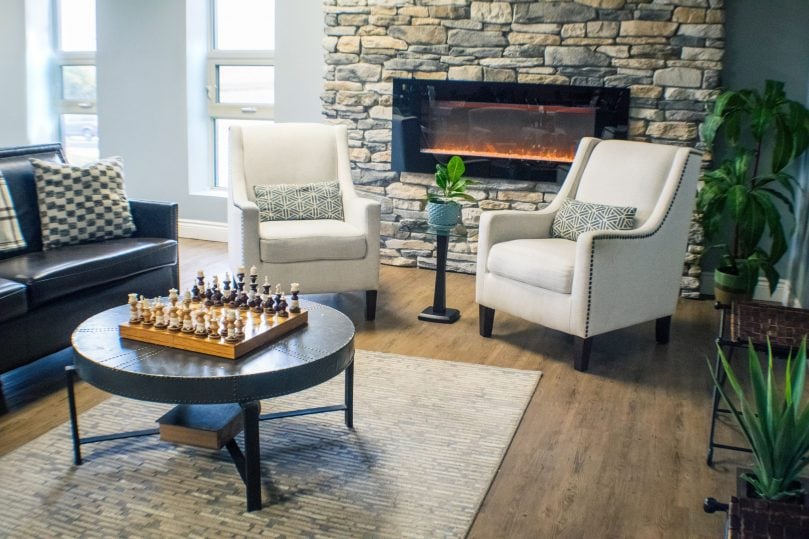Completing drug or alcohol rehab is an incredible achievement. However, it by no means signals the end of your recovery. In fact, what happens after rehab will be just as instrumental to your recovery as the steps you will take in treatment.
The Purpose of Aftercare Treatment
Aftercare or continuing care will be a vital component of your rehab program. Significant reductions in alcohol and drug relapse rates have been directly linked with participation in aftercare programs, which include multiple resources for support as you transition to life after treatment.
Recovery Challenges
Two realities of leaving treatment and living life after drug rehab are relapse and facing certain challenges without drugs or alcohol. You can expect to encounter and have to cope with:
- Cravings and anxiety
- Emotions like shame or guilt
- Repairing existing relationships
- Building new relationships
- Boredom
- The feeling of a lack of purpose
- Managing life’s financial, work, and family responsibilities
A plan will help you remember the skills and strategies learned in treatment and remind you to apply them when facing challenges.
Planning
Developing an aftercare plan will involve both you and your counsellor. This plan will consider where you currently are in your recovery and will be tailored to your individual needs. A healthy plan will include a focus on utilizing the tools you learned while in treatment – and working toward new goals and aspirations.
Your plan allows you to identify your recovery challenges and lists your options for dealing with them. It will also include opportunities to check in and re-evaluate it, if necessary, as well as:
- Individual, alumni, and family counselling opportunities
- Referrals to help with debt and housing
- Follow-up calls
- Fitness support, including gym and training referrals
- Nutritional support, including meal planning
- Community and private counselling resources
- Phone access to treatment centre staff for clients and families
Lifestyle Changes and Coping Strategies

Life after rehab will mean making changes to your lifestyle and adopting strategies to help you cope with the recovery challenges as mentioned earlier.
Maintaining Your Physical Health
An integral part of recovery is learning how to experience pleasure from substance-free sources. Supporting your physical health will include adopting an exercise schedule. Exercise promotes positive feelings because it produces dopamine, which is referred to as the “feel-good hormone”.
Another aspect of physical health that will be a focus of life after recovery will be ensuring you get enough quality sleep each night. Regulating your circadian rhythm is vital to every aspect of your physical health, helping your body to:
- Produce hormones
- Regenerate cells
- Control weight
- Achieve healthy cardiovascular activity
- Achieve optimal Immune system function
- Optimize digestion
You will have also learned about healthy eating while in rehab, and you will need to maintain these habits after leaving treatment. Shopping for and preparing healthy foods will support your new healthy lifestyle and help you restore your physical health.
Minimising Boredom
Another challenge you’ll face in recovery is boredom, which can cause old thoughts and behaviour patterns to arise and lead to relapse. This makes staying occupied especially important.
Adopting healthy ways to stay busy in your free time, such as starting a new hobby, attending meetings, returning to school, working part-time or volunteering can all help you minimise boredom and enjoy your life. However, it’s important not to have such a full schedule that you never get a break, as this can lead to stress and the desire to relieve it with unhealthy habits.
Self-Care
Self-care will be a vital aspect of your post-treatment life. Any schedule you create should include sufficient down-time to allow for self-care. Self-care means making yourself a priority and doing those things that help you to de-stress and recharge.
Self-care can mean different things to different people. For example, you may enjoy watching movies or curling up with a good book. You may choose to rescue a dog or cat from the animal shelter. Or, you might prefer more physical forms of stress relief, such as participating in a group sport, walking, or canoeing.
Self-care can also mean connecting with yourself on a deeper level. This may mean attending spiritual services, meditating, or participating in yoga or tai-chi. Engaging in creative pursuits like singing, drawing, or painting and playing an instrument can also help you connect with yourself and provide an outlet for stress relief and self-expression in healthy ways.
Giving Back
Volunteering is the ultimate win-win; it allows you to give back by helping others, and it provides you with pleasurable feelings and a sense of purpose—but volunteering’s benefits also help you to:
- Build confidence by exposing you to new experiences and opportunities to achieve your goals
- Meet new people and build new and healthy connections
- Challenge yourself
- Practise skills learned in rehab
- Uncover hidden talents
- Be part of something meaningful
Staying on Track
With so many things to consider and so much to do in your post-treatment life, you may encounter the challenge of sticking to your recovery plan. This is where it’s important to remember that keeping up with your meetings, phone call check-ins, and other aspects of your aftercare plan are all aspects of self-care.
Your aftercare plan was designed to work for you once you’ve begun your life of sobriety. If it’s working, it’s vital to continue with it in order to remain grounded in recovery. Another important part of staying on track is to recognise when life starts getting overwhelming and to take the next step, which is to get help.
Accessing Your Support System
Meeting obligations can be a challenge after leaving rehab, but the key to reducing the feelings of stress and overwhelm is, once again, to consult your aftercare plan.
Your plan will outline the people and activities that are there for you should you need them. This support system will ensure there’s always someone to talk to when you’re facing a difficult time.
It may include:
- Family members you can talk to
- Sponsor phone numbers
- Locations in your city or town where you can attend meetings
- Schedules for attending meetings virtually so you can share your experiences with other people in recovery
Having a support system can offer a multitude of benefits, but it’s important not to let feelings of shame, doubt, or even overconfidence prevent you from accessing it.
Struggle is an inevitable part of sober life. Remember, when you feel overwhelmed, you never have to deal with it alone.
Premier Treatment and Aftercare Programs for Military, Veterans and First responders

Entering the process of recovery and staying sober are major changes that require the best possible support. Gateway Recovery Centre supports men who are struggling with addiction by offering comprehensive inpatient residential treatment programs and superior continuity of care.
Gateway’s individualized programs are designed to treat the whole person. We employ a variety of evidence-based therapies that emphasize the importance of nutrition to overall health and facilitate client understanding of root causes of substance use disorder.
Prior to discharge, we ensure our clients are well-supported with a comprehensive aftercare plan. The plan includes phone and Skype counselling for our clients attending treatment from out of the area.
Clients also have access to nutritional support, weekly support groups, and counselling opportunities. For one year after treatment, clients will receive an alumni follow-up call each month to offer support and check in on adherence to their aftercare plan.
When you are ready to enter addiction treatment, Gateway is ready to welcome you. Visit our treatment centre online or call for more information: 1-705-535-0636 .



